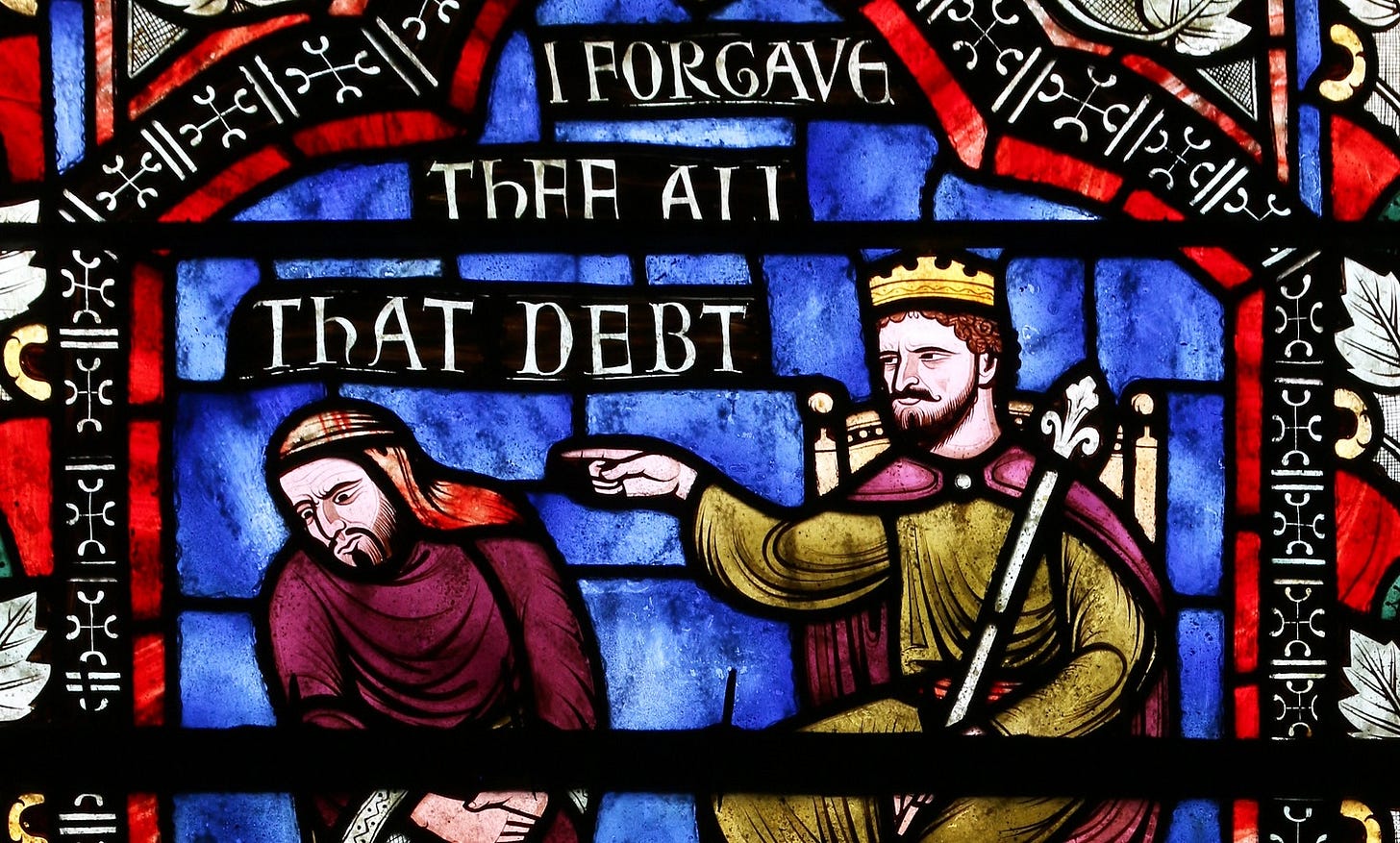Why the unpayable debt of sin requires us to be merciful to others
Christ’s parable of the Unmerciful Servant shows that no offence against us is anything compared to our own debt to God.

Christ’s parable of the Unmerciful Servant shows that no offence against us is anything compared to our own debt to God.
Editor’s Notes
In this part, Fr Coleridge tells us…
How unmercifulness turns prayer itself into self-condemnation, for he who will not forgive actually asks God not to forgive him.
That hardness of heart extinguishes grace and love, showing a soul already verging on reprobation.
Why every occasion of forgiveness is a treasure, by which we draw freely from the inexhaustible mercy of God.
Coleridge shows us that mercy towards others is the currency of divine favour — the means by which God’s own pardon and bounty are measured back to us.
For more on the context of this passage, see Part I.
The Measure of Forgiveness
The Preaching of the Cross, Vol. I
Chapter IX
Fr Henry James Coleridge, 1886, 159-70
St. Matthew xviii. 21-35; Story of the Gospels, § 88
Burns and Oates, 1886.
(Read at Holy Mass on the Twenty-first Sunday after Pentecost)
The habit of forgiving—the point of the parable
Our Lord’s answer of seventy times seven must be understood as simply indicating that there is to be no limit whatever, that the number of times of the occurrence of the offence must have nothing to do with the question of its condonation.
The Divine reason for this is contained in the truth which is represented in the parable by the forgiving of the debt of ten thousand talents by the King. This truth is that we are debtors to God for the pardon of innumerable sins, and that, in consequence, if we are to be His children, and to earn our forgiveness, we must set no limit to our repeated forgiveness of others, who may offend against ourselves.
The proportion, or rather the impossibility of there being any proportion, between the offences in which we are debtors to God, and the cases in which men are, as it were, debtors to us, is represented in the parable by the proportion between the ten thousand talents on the one hand and the hundred pence on the other.
It is easy to see that the image used in the parable is utterly inadequate to sustain the comparison. For there can be no offence against man which can be compared in gravity with any offences which we commit against God.
The truth that God makes our forgiveness of others the condition and the measure of our pardon by Him, as we are taught by the very wording of the Lord’s Prayer, is touched in the parable by the significant feature, that the words in which the fellow-servant of the man who has been forgiven by his lord pleads for patience, are identical with those used by that man to his lord in the first instance.
The enforcement on the part of God of the condition of forgiveness of others, if we are to hope for forgiveness from Him, is the main point of the parable, just as in the description of the separation of men at the judgment day as the sheep are separated from the goats, in the last of our Lord’s parables, the connection between the practice of the works of mercy here and the eternal rewards which are to be allotted at that last day, is the main point of that teaching.
The points as to which there may be some doubt or difficulty in the details of this parable are easily seen, and we may pause a moment to say a few words with regard to each of these.
Father Coleridge Reader is a labour of love. But curating, cleaning up and publishing these texts takes real work.
To keep this project going, and to make more of this treasury available, we rely on reader support. Some posts are reserved for members to sustain this mission.
We’re trying to keep something precious alive.
If you’ve benefited, consider joining us as a subscriber. It makes a real difference.

